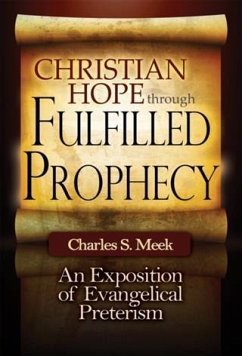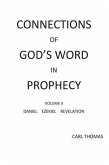Were Jesus and the New Testament writers wrong? If Jesus and the writers of the New Testament were wrong, they could not have been inspired, and Jesus Himself was a false prophet. This critical problem must be addressed by the church.
Could the "last days" be referring to the final days of the Old Covenant order rather than to the end of the physical universe? Was the "time of the end" when Jerusalem and the temple were destroyed in AD 70-the date when the ancient covenantal system of temple sacrifices for sin ended forever? Could many modern Christians have misunderstood what Jesus meant by his Parousia (his "Second Coming") -that it was to be a divine, but non-visible "coming in judgment" against the Jews in AD 70-similar to God's coming in judgment against the Jews or their enemies on multiple occasions in the Old Testament? Could the King James Version of the Bible have misled English speaking Christians for 400 years about certain critical details?
This book explores these possibilities, which if true, resolve the challenges to the accuracy of the Bible. The author examines the growing view of Bible prophecy called "preterism" or "covenant eschatology." This is the view that most, if not all prophecy has been fulfilled, completely disarming the challenges by Christianity's opponents. Before you dismiss this idea, you should test your presuppositions against what the Bible actually says. The preterist view has been held by some Christians since the first century and is gaining adherents today as flaws in the popular theories are being critically examined and discredited. Evangelical preterism restores Jesus as a true prophet and the Bible as reliable and authoritative.
The torrent of popular books and claims about biblical prophecy in recent decades seems to have a peculiar appeal to lay believers who, curiously enough, find hope in an expected destruction of the planet and its replacement with a utopia in which even carnivorous animals will take up vegetarianism. It is simply taken for granted that the Bible predicts and explains an end of time, and that there is no number of elapsed centuries spent waiting for it that cannot be called the "end times." This book upends such notions and will be of considerable interest to any Christian who takes the Bible seriously but is confounded, confused, and frustrated with the near comical, but sad state of affairs that afflicts modern Christianity on the question of the supposed end of all things.
The book is the product of over 10 years of research by the author, along with input from eight contributors. The book critically examines all of the popular views of Bible prophecy, many of which are contradictory or are little more than fanciful speculations without biblical support. It is written in easy-to-follow language for the informed layman, and it clearly and definitively answers the objections to the preterist view.
If you have never studied Bible prophecy carefully, or if the various modern views of prophecy just do not make sense when you read your Bible, this book will give you increased confidence in God's Word. It covers all of the eschatological topics including the New Heaven and New Earth, the Day of the Lord, the End of the Age, the Apocalypse, the Beast, the Great Tribulation, the Millennium, the Second Coming, the Kingdom of God, the Rapture, the Resurrection, and more. It brings extraordinary clarity to a difficult subject. Fear not to be challenged and changed.
Dieser Download kann aus rechtlichen Gründen nur mit Rechnungsadresse in A, B, BG, CY, CZ, D, DK, EW, E, FIN, F, GR, HR, H, IRL, I, LT, L, LR, M, NL, PL, P, R, S, SLO, SK ausgeliefert werden.









